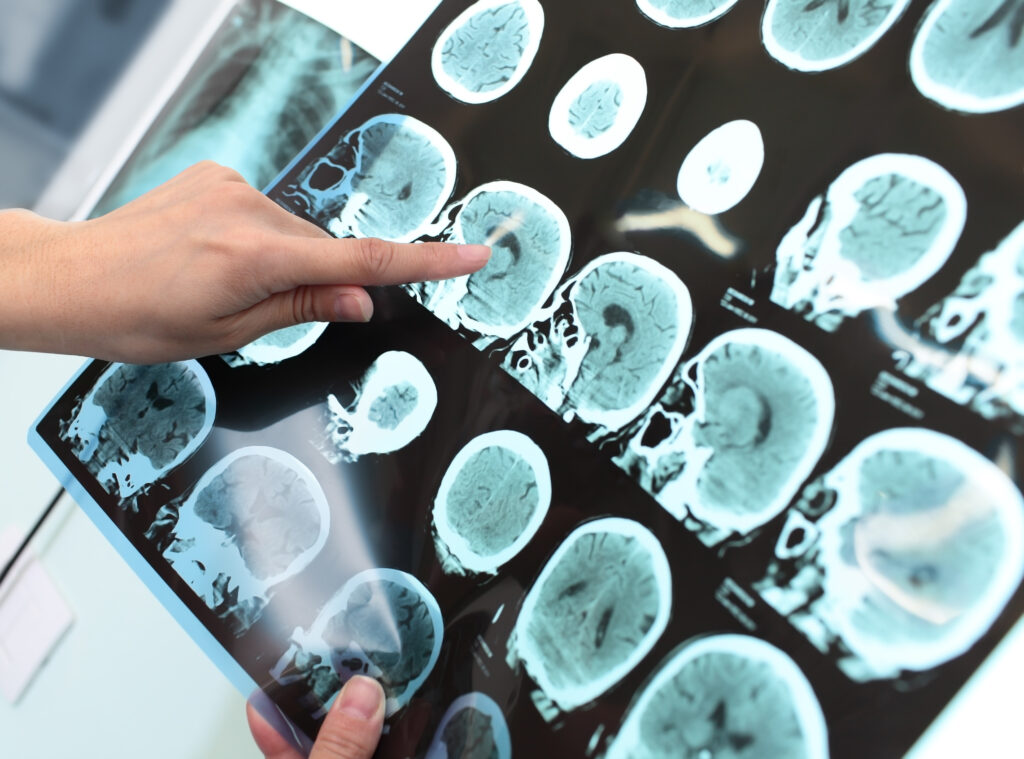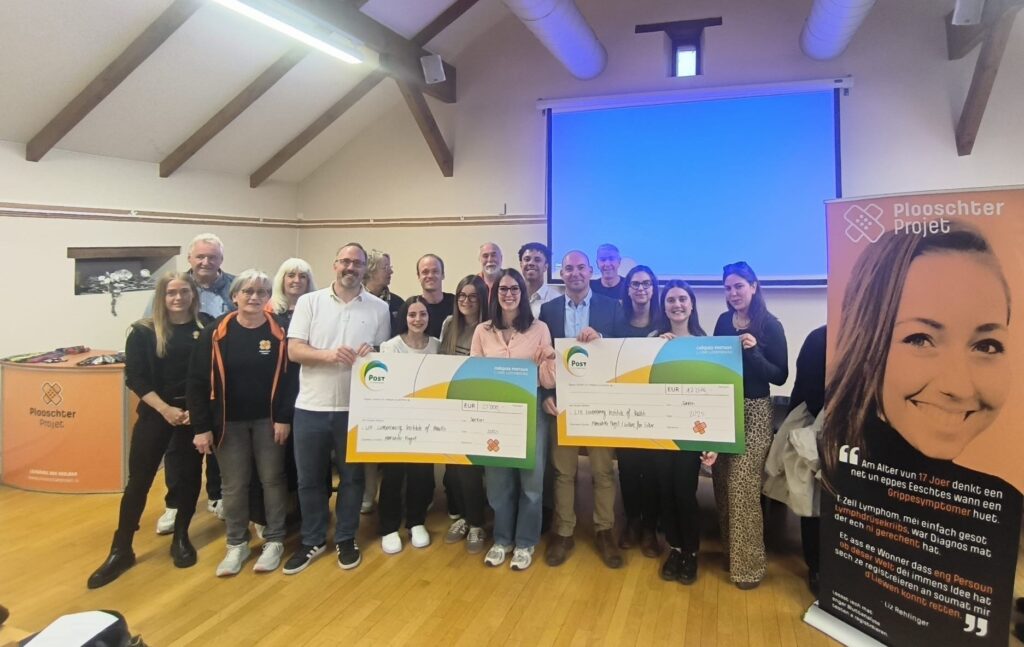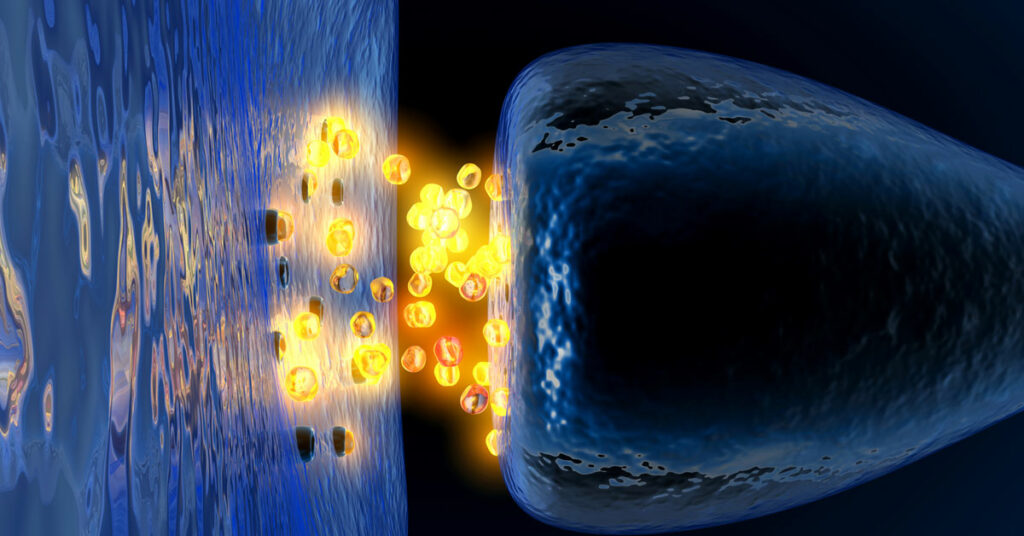News
The surprising link between allergic diseases and brain cancer
LIH-led STRATALLON task force pave the way for targeted therapies in AllergoOncology

In a major breakthrough that could reshape our understanding of allergies and cancer, the AllergoOncology in the Era of Personalized, Stratified, and Precision Medicine (STRATALLON) Task Force has just released an article titled “AllergoOncology: Biomarkers and Refined Classification for Research in the Allergy and Glioma Nexus – a Joint EAACI-EANO Position Paper.” Conducted under the leadership of Dr Aurélie Poli from the Neuro-Immunology Group at the Luxembourg Institute of Health, this cutting-edge study explores the intricate relationship between allergic diseases and adult-type diffuse gliomas, a type of brain cancer.
Numerous epidemiological studies have investigated associations between a history of allergic diseases and cancer risk or prognosis. Notably, investigations have revealed an inverse association between allergies and cancer risk, in particular for gliomas. Allergic diseases and cancer are both influenced by genetic and environmental factors, with potential impacts of allergic inflammation in cancer depending on the tumour subtype and its microenvironment. Several hypotheses have been proposed to define this complex interplay, some suggesting that allergic symptoms may decrease tumour risk by expelling environmental carcinogens and stimulating behavioural avoidance, while others believing it may be due to a general enhanced immune responsiveness.
This position paper not only unravels the complex interplay between allergies and gliomas, but also signals a new era in the way we approach cancer research. Published in the prestigious journal “Allergy” this study expands on prior research and recommends a shift in focus. Instead of addressing general associations, it proposes to delve into specific endotypes of allergic diseases, using cutting-edge technologies and bioinformatics tools. Thus, the position paper highlights recent advances in biomarkers and refined classification methods that promise to revolutionize research in the allergy and glioma nexus. Co-chaired by Dr Aurélie Poli, Scientist at LIH’s Neuro-Immunology Group, and Dr Michelle C Turner, Associate Research Professor at the Barcelona Institute for Global Health (ISGlobal), the European Task Force STRATALLON is dedicated to advancing precision medicine in the field of AllergoOncology within cancer research.
“This paper provides a comprehensive exploration of the intricate relationship between allergic diseases and adult-type diffuse gliomas. It is the first step supporting our ultimate objective, that is to further investigate the connection between allergy and glioma by utilizing advanced biomarkers and refined classification methods as outlined in our position paper. Our focus for the upcoming year is to transition our Task Force into the DATALLON project, which stands for AllergoOncology Database, aiming to facilitate the implementation of our current recommendations,” explained Dr Poli.
The Task Force emphasizes the need for systematic approaches and up-to-date molecular and genetic sub-classifications when investigating the comorbidity of allergies and cancer. The joint position paper marks a significant step forward in AllergoOncology research, bridging gaps between allergy research and neuro-oncology. The collaborative effort between the European Academy for Allergy and Clinical Immunology(EAACI) and the European Association of Neuro-Oncology (EANO), supported by the STRATALLON Task Force, reflects a commitment to advancing precision medicine and enhancing our understanding of immune-glioma interactions. Together they aim to develop guidelines that will facilitate innovative clinical and epidemiological studies, providing a roadmap for the future of personalized medicine.
In line with the investigations we conduct within our research group, comprehensive epidemiological and molecular studies aiming to analyse the mechanisms underlying this inverse association will ultimately enable us to harness this protective effect for the development of novel immunotherapeutic approaches.
explained Dr Michelucci, head of the Neuro-Immunology Group.
Funding and collaborations
This publication is the result of collaborative efforts involving researchers from the three key departments of the LIH – namely the Department of Cancer Research, the Department of Infection and Immunity and the Department of Population Health – each contributing with their complementary expertise in epidemiology, oncology, immunology, and allergy. This joint endeavour underscores the commitment of the Luxembourg Institute of Health to supporting national translational cancer research goals.
The Task Force, known as “AllergoOncology in the Era of Personalized, Stratified, and Precision Medicine” (STRATALLON), received crucial support from the European Academy for Allergy and Clinical Immunology (EAACI). Financial backing from EAACI played a pivotal role in the development of this ground-breaking Position Paper. The writing of this Position Paper was undertaken by representatives from EAACI and the European Association of Neuro-Oncology (EANO), who collaborated under a Memorandum of Understanding. Dr Poli has received funding from the Action Lions “Vaincre le Cancer” and FNRS-Télévie (PDR-TLV 2023 RESTAGE).








